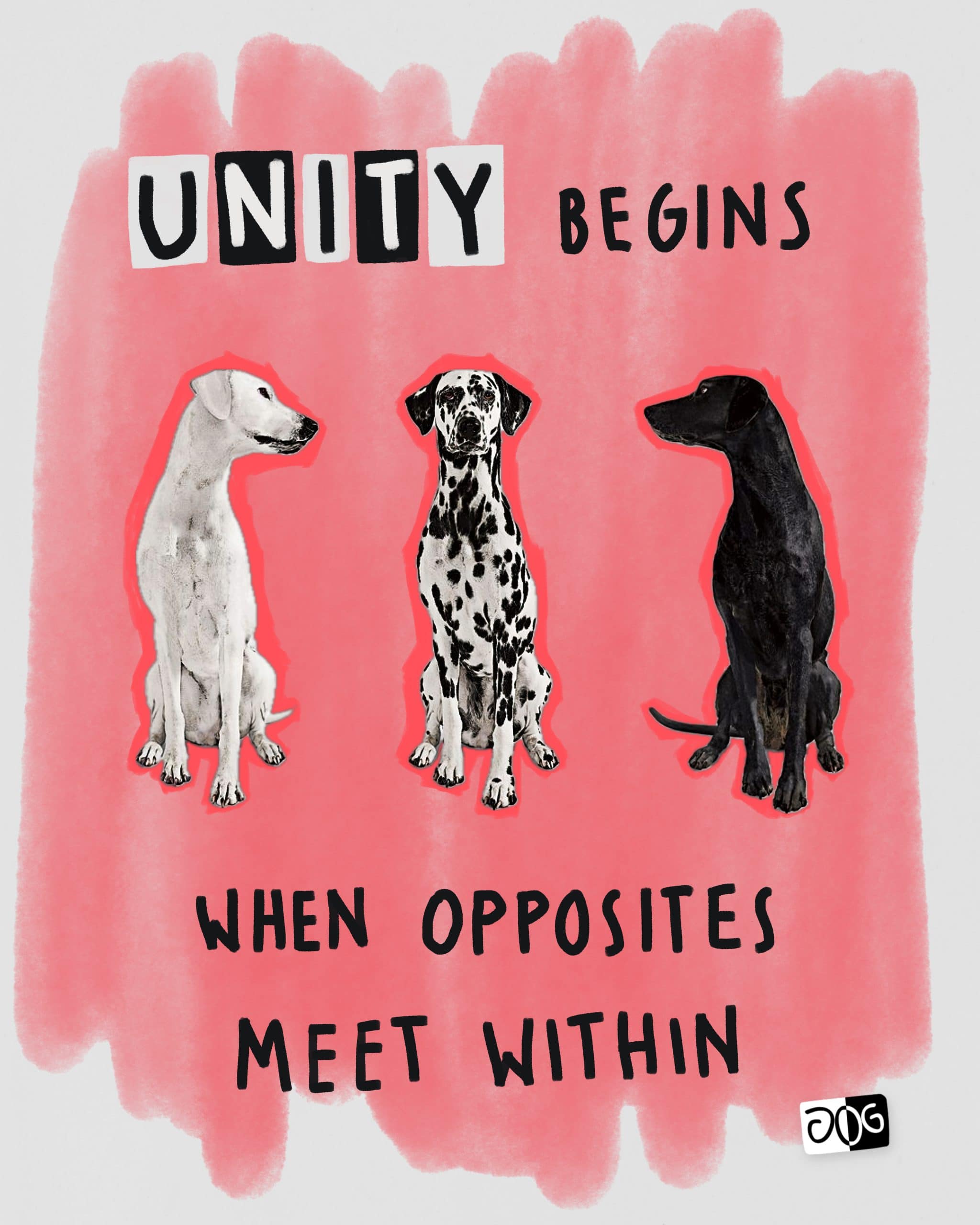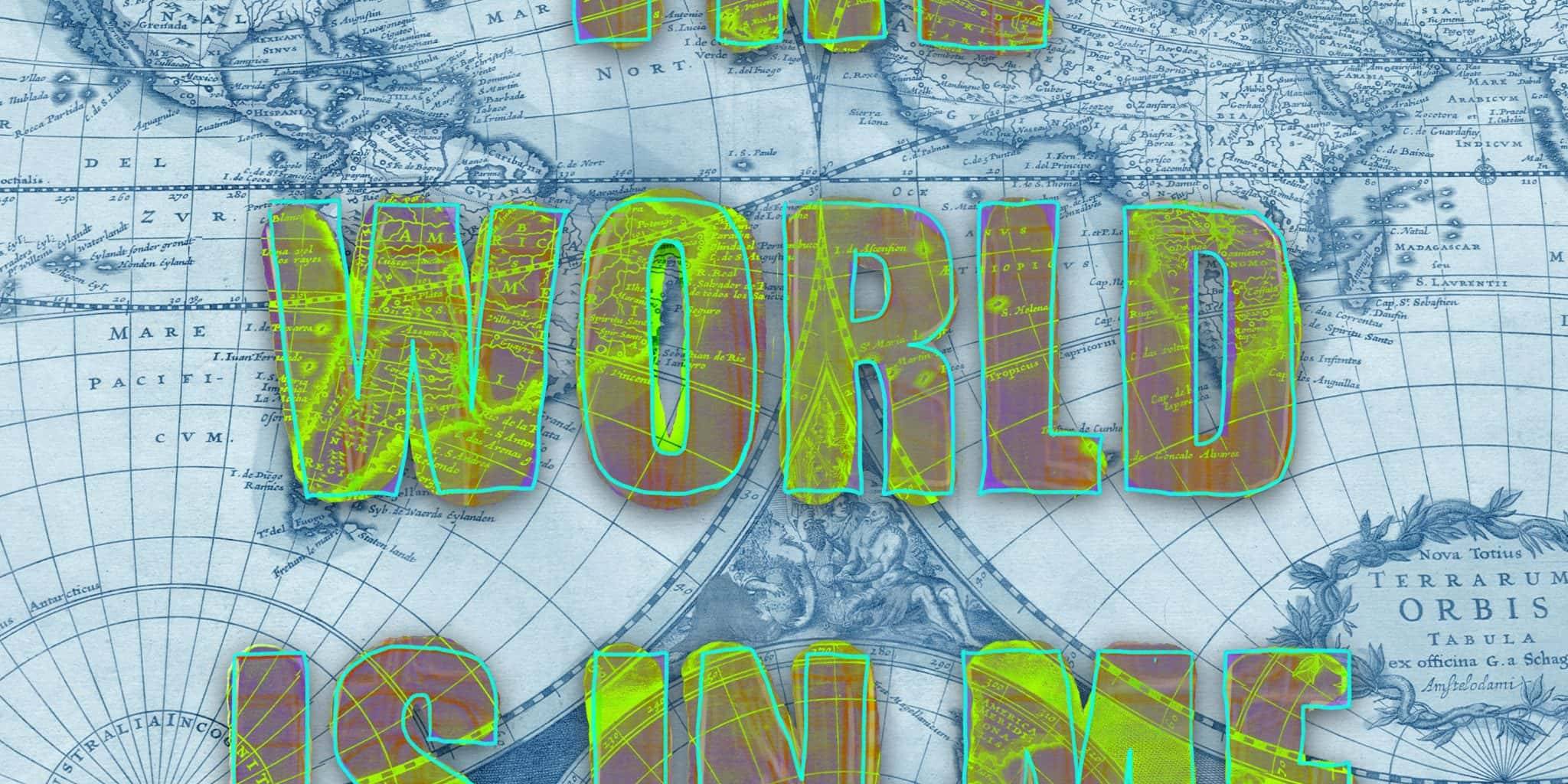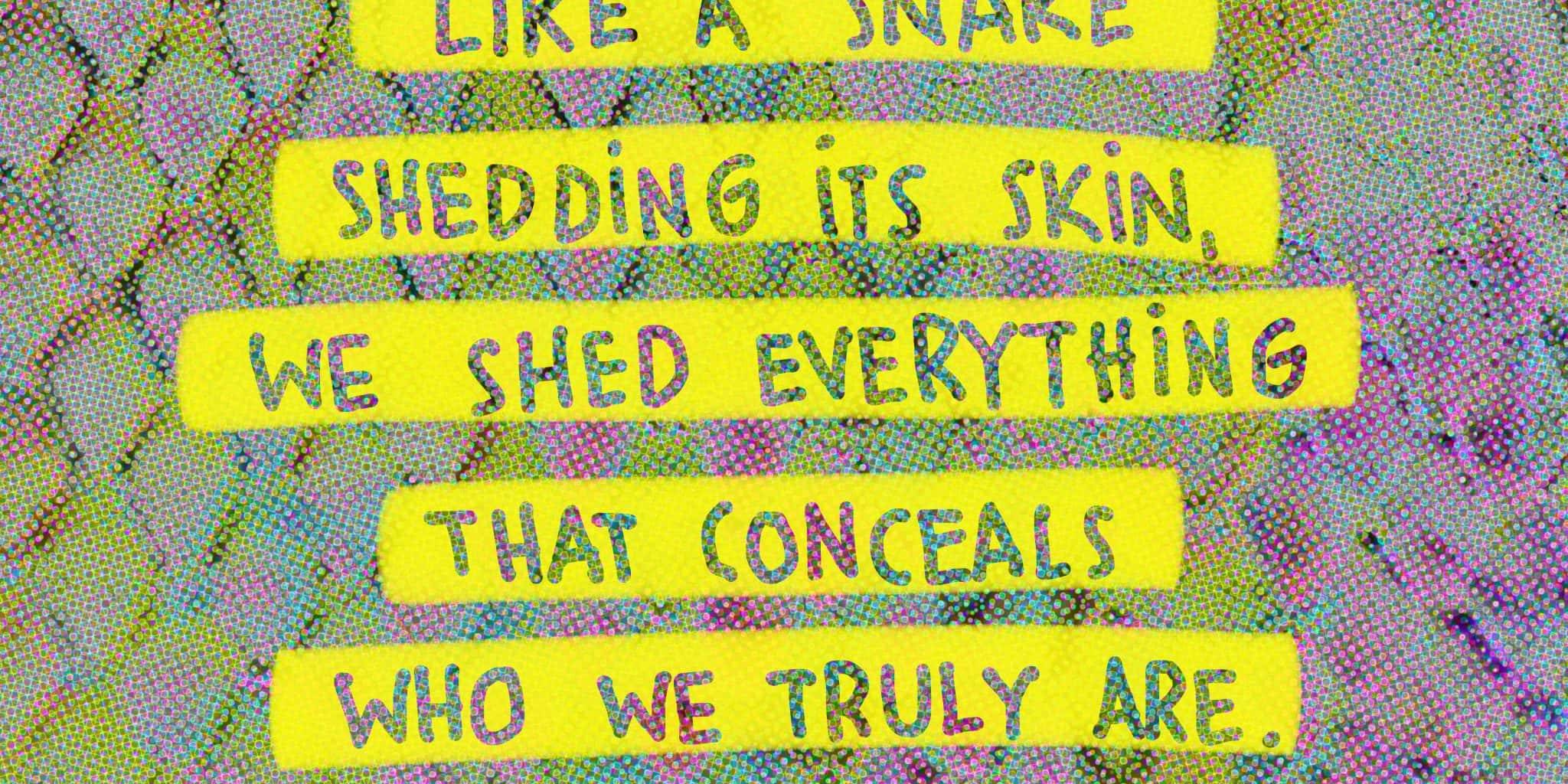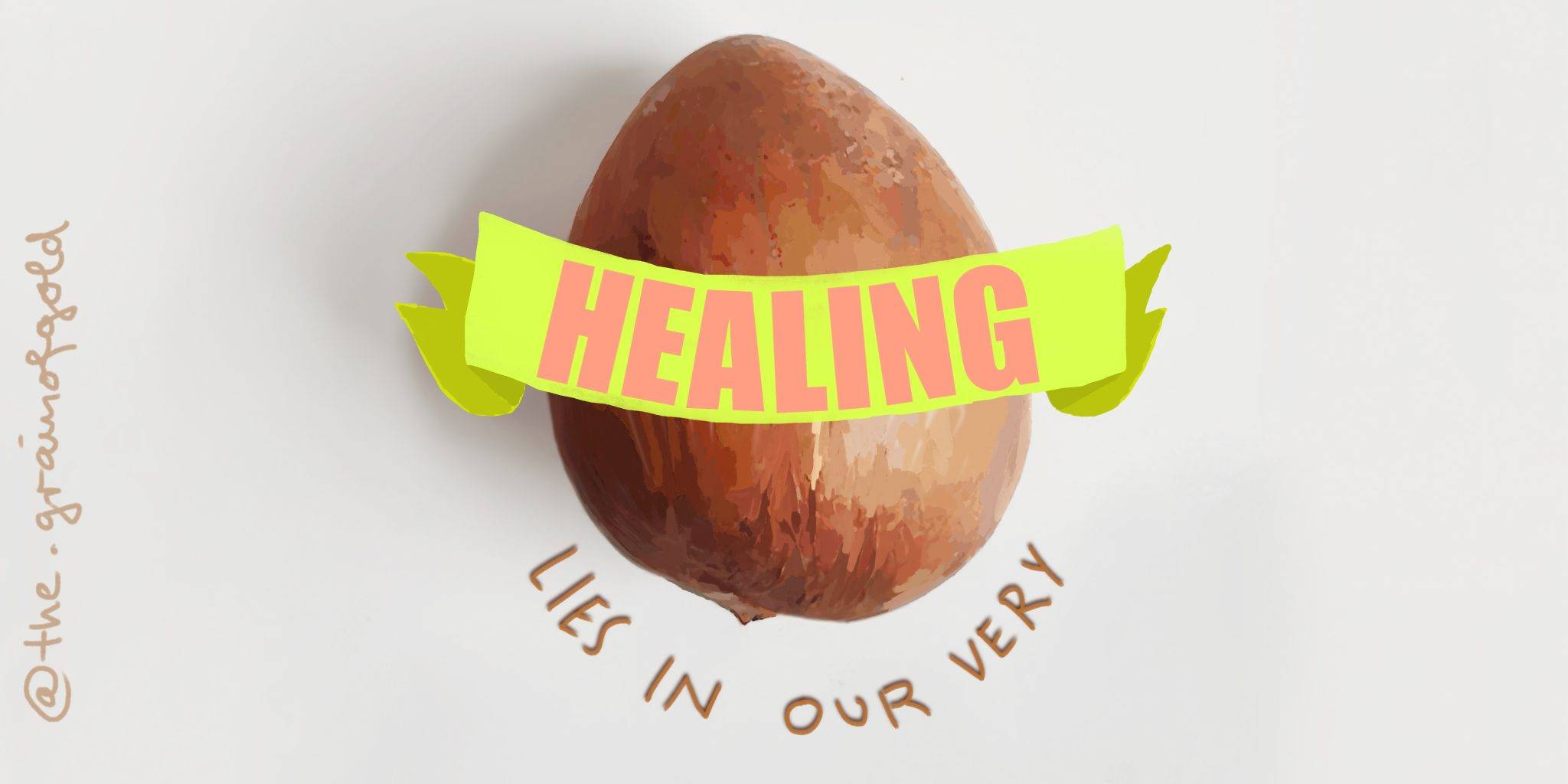When opposites meet within
Unity Starts Within: Reclaiming the Fragmented Self
We often think that it’s on others to accept us. But if we’re honest with ourselves, how can we expect others to truly accept us when we’re at war with our own selves? When we haven’t reconciled the fragmented parts of our being, our interactions – all of them – become tangled in unmet needs and unspoken wounds. It’s not about them; it’s about us. This is where unity begins: not with transcendence, but with integration.
The War Within
Many of us live in a state of inner conflict, suppressing, avoiding, or outright rejecting parts of ourselves we deem unworthy. Perhaps it’s the shame we carry from past failures, the insecurities rooted in childhood wounds, or the anger we’ve been told is unacceptable. These disowned fragments don’t disappear; they linger in the shadows of our psyche, influencing our choices, reactions, and relationships.
We’ve been conditioned to believe that to be accepted by others, we must first erase or hide these parts. Politeness masks our hidden aggression. Overachievement conceals our insecurity. Overfriendliness covers our fear of rejection. But this overcompensation doesn’t heal the divide within us; it deepens it. And so, our relationships become arenas where our unresolved conflicts play out, where we seek validation to fill the voids we’ve refused to face.
How can we expect others to truly accept us when we’re at war with our own selves?
Awareness: The First Step Toward Unity
Unity is not about transcending these messy, uncomfortable parts of ourselves. It’s about becoming aware of them. When we bring our rejected, suppressed, and avoided parts into the light of awareness, something profound happens. By simply noticing them – without judgment, without trying to fix, change or let them go – we begin the process of integration.
Awareness doesn’t require action. It requires presence. To sit with our shame, our low self-esteem, our hidden aggressiveness, and to simply let them be. To hold space for all the contradictions within us: the part that craves connection and the part that pushes people away, the part that yearns for success and the part that fears failure, the part that loves and the part that resents. This is what unity means. It’s not about exclusion; it’s about inclusion. It’s not about letting go; it’s about holding everything—every fragmented piece—in one container of awareness.
The Power of Integration
When we stop fighting ourselves, we free up immense energy that was once spent on suppression and denial. This energy becomes available for growth, creativity, and connection. We no longer need to project our insecurities onto others or depend on their approval to feel valid. Instead, we approach relationships from a place where acceptance flows naturally because we’ve already begun to accept ourselves. We connect with others from a place of abundance rather than lack. We no longer seek or need something from the other. Instead, we overflow with a desire to give; without sharing this abundance, it would go to waste.
Integration transforms our interactions. When we’re no longer entangled in unmet needs and unspoken wounds, our connections deepen. We can hold space for others’ contradictions because we’ve learned to hold space for our own. We become less reactive, more compassionate, and profoundly present. This is the foundation for a fulfilling life and richer relationships – with ourselves, with others, with the environment, and with the universe.
Unity is not about transcending these messy, uncomfortable parts of ourselves. It’s about becoming aware of them.
Holding the Tension of Opposites
True unity doesn’t resolve contradictions; it integrates them. It holds the tension of opposites without collapsing into one side or the other. This tension is not a problem to be solved; it’s a dynamic balance to be maintained. To unify is to recognize that our darkness gives depth to our light, that our insecurities make our confidence genuine, that our vulnerabilities are the source of our strength.
In this process, we learn that we don’t need to hide or fix ourselves to be worthy of acceptance. We don’t need to transcend our humanness to experience divinity. Unity is about being fully human – messy, complex, and vulnerable. It’s about integrating everything into awareness, letting each part take its rightful place within us.
Experiencing Unity
For a more fulfilling life and deeper connections, explore what it truly means to unite your contradictory fragments within yourself. Start by noticing the parts of you that you’ve pushed away. Sit with them. Listen to them. Allow them to be. Over time, you’ll find that the war within you subsides, replaced by a profound sense of peace and authenticity.
You may also like
The world is in me
Our experience of the world is…
Unbecoming: The journey to rediscovering who you truly are
Self-transformation is a profound…
The seed of healing lies in our very brokenness
Our ability to heal and transform comes…






